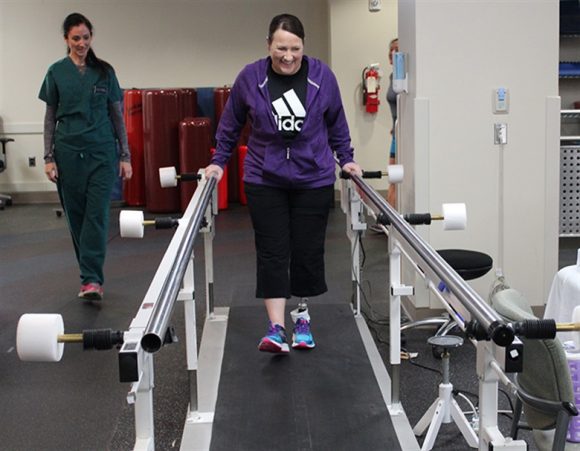The Mind-Body Connection in Spine Surgery Recovery
Recovering from spinal surgery is more than just a physical process—it’s a mental one too. Many patients focus on the technical aspects of their procedure, like the surgeon’s expertise or the type of surgery being performed. However, research shows that a patient’s outlook, expectations, and mental state have a huge impact on their satisfaction and recovery after surgery.
A recent study analyzing nearly 10,000 lumbar spine surgeries found that patients with a positive outlook on their future health were much more satisfied with their surgical outcomes than those with negative expectations. This demonstrates how important pre-surgery counseling and mental preparation are in aligning expectations with reality.
For those thinking about spine surgery, working with an experienced spine surgeon in Morristown, NJ provides the comprehensive pre- and post-operative support you need for a positive outcome.
The Role of Expectations in Spine Surgery Recovery
Why Patient Expectations Matter
A patient’s expectations before spine surgery can influence multiple aspects of their recovery, including pain perception, satisfaction with results, and motivation for rehabilitation. Patients who expect a smoother recovery often report less post-surgery pain. Additionally, the study found that 75% of patients with positive expectations were satisfied with their outcomes, compared to only 60% of those with negative expectations.
Beyond satisfaction, patients who go into their surgery with an optimistic outlook tend to be more engaged in physical therapy for spine surgery recovery and other forms of follow-up care. This leads to improved mobility, faster recovery, and better long-term health outcomes.
The Psychological Impact of Surgery
It can be overwhelming to undergo spine surgery, understandably causing anxiety, fear, or even depression. These emotions can have a negative impact on pain tolerance and healing. Patients who engage in mental preparation for their surgery, through pre-surgical counseling or support groups, often experience better emotional well-being and improved recovery. Managing stress before surgery by using relaxation techniques or talking to a healthcare professional can make a huge difference in post-op healing.
How a Spine Surgeon Can Help Manage Expectations
A spine surgeon in Morristown, NJ, plays a role in helping patients with emotional and physical preparations for surgery. This includes:
- Providing realistic expectations about pain relief and mobility improvements.
- Offering pre-surgical counseling to address fears and concerns.
- Discussing the importance of a positive mindset in recovery.
Patients should ask their surgeon about the typical recovery timeline, possible complications, and realistic functional improvements to stay fully informed.
Aligning Expectations with Reality
The Benefits of Pre-Surgical Counseling
Engaging in pre-surgery counseling helps patients:
- Understand the recovery timeline and set achievable goals.
- Learn coping strategies for post-surgery discomfort.
- Address any fears or misconceptions about surgery.
Many spine surgeons in Morristown, NJ, recommend psychological assessments before surgery to identify patients who might need additional mental health support. Addressing these concerns ahead of time ensures the patients’ mental preparation for the challenges and improvements that come with surgery.
Practical Steps for Mental Preparation
- Educate Yourself: Learn about the procedure and what to expect post-surgery. Understanding the step-by-step process of recovery can reduce anxiety and give a sense of control.
- Set Realistic Goals: Work with your surgeon to set achievable milestones in your recovery. This prevents frustration and helps track progress in a meaningful way.
- Build a Support System: Family, friends, and therapists can provide emotional encouragement. Having someone to assist with daily tasks and offer reassurance can ease stress during recovery.
- Practice Relaxation Techniques: Deep breathing, meditation, and mindfulness can help reduce anxiety and improve pain tolerance. Starting these habits before surgery makes them more effective post-op.
How Hope and Understanding Improve Recovery Outcomes
Hope as a Recovery Tool
Hope isn’t just a feeling—it has measurable effects on healing and pain management. Studies have shown that patients who maintain a hopeful mindset experience less pain and recover faster. Focusing on small, positive milestones throughout recovery helps keep you motivated.
The Power of Patient Education
One of the most effective ways to prepare for spine surgery rehabilitation is through patient education. Learning about the procedure and what to expect post-surgery can significantly reduce anxiety and uncertainty. Patients who have a clear understanding of their recovery timeline tend to feel more in control of their healing process.
Support from family, friends, and healthcare providers is also crucial. Patients with a strong support system are more likely to stay motivated and follow their rehabilitation after spine surgery plan. Seeking emotional encouragement from loved ones or professional counselors can reduce post-surgery stress and improve overall well-being.
Post-Surgery Recovery
The First Few Weeks: Managing Expectations
The initial weeks after spine surgery can be challenging, but maintaining a positive and proactive mindset makes all the difference. Patients need to follow post-operative instructions carefully to prevent complications. Discomfort, swelling, or limited mobility is normal, but with proper care and rehabilitation, they’ll improve over time.
Emotional support is also necessary during this period. Feelings of frustration or discouragement can arise, especially when recovery takes longer than expected. Having a strong support system can improve morale and make daily tasks easier.
The Long-Term Approach to Recovery
Recovering from spinal surgery is a gradual process that requires patience and commitment. Regular follow-up visits with a spine surgeon in Morristown, NJ will help monitor progress and address any lingering concerns. Attending physical therapy for spine surgery recovery improves mobility and prevents post-surgical complications.
Additionally, lifestyle modifications like maintaining a healthy weight, practicing good posture, and staying active can help prevent future spine issues, supporting the long-term health of your spine. Patients who prioritize these habits tend to experience better overall well-being and a reduced likelihood of needing additional procedures in the future.
FAQ: Understanding the Psychological Side of Spine Surgery Recovery
-
Does mindset really impact spine surgery recovery?
Yes, a positive mindset helps spine surgery recovery by reducing pain perception, increasing motivation for rehabilitation, and improving overall satisfaction. Patients who expect a smoother recovery tend to heal faster and actively engage in physical therapy.
-
What are the best mental strategies to prepare for surgery?
The best strategies include pre-surgical counseling, relaxation techniques, goal setting, and having a strong support system. Speaking with a spine surgeon in Morristown, NJ, about realistic recovery expectations also helps.
-
Can pre-surgery counseling really make a difference?
Yes. Counseling helps patients understand what to expect, manage anxiety, and set realistic recovery goals, leading to greater satisfaction with surgical outcomes.




